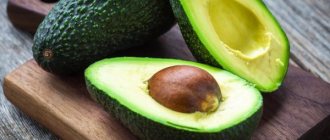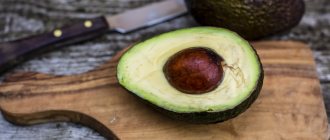Walnuts are a storehouse of nutrients. It contains many vitamins and microelements that everyone needs, especially those who live in big cities. Outwardly somewhat similar to the brain, this nut really has a beneficial effect on the functioning of this organ. In addition, it is highly nutritious and serves as a good and healthy snack: after eating a small handful, you can feel full.
How regular consumption of this nut affects the body, what beneficial properties it has and who should not eat it - nutritionist Anna Beresneva
.
How to get rid of the feeling of hunger? 10 healthy snack ideas
Benefits of walnuts
All the benefits of walnuts are due to its unique composition.
Composition and calorie content
The calorie content of a walnut is 656 Kcal.
Calories 654 Kcal
- Fat:
65.2 g - Proteins:
15.2 g - Carbohydrates:
13.7 g - Water:
4.0 g - Ash:
1.8 g
Calorie content 1 pc. walnut is about 32-40 kilocalories.
| Vitamins (per 100 g): | Quantity | %RDN |
| Gamma tocopherol (form of vitamin E) | 20.8 mg | 139% |
| Vitamin B6 (pyridoxine) | 0.54 mg | 41% |
| Vitamin B7 (biotin) | 19 mcg | 38% |
| Vitamin B1 (thiamine) | 0.34 mg | 29% |
| Vitamin B9 (folic acid) | 98 mcg | 25% |
| Vitamin B2 (riboflavin) | 0.2 mg | 12% |
| Vitamin B5 (pantothenic acid) | 0.57 mg | 11% |
| Vitamin B4 (choline) | 39.1 mg | 8% |
| Vitamin B3 (PP, niacin) | 1.13 mg | 7% |
| Vitamin E (alpha tocopherol) | 0.71 mg | 5% |
| Vitamin K | 2.82 mcg | 3% |
| Minerals | Content | % of RDN* |
| Nickel | 190-450 mcg | 213% |
| Silicon | 60 mg | 200% |
| Bor | 107 mcg | 153% |
| Copper, Cu | 1.34-1.59 mcg | 146% |
| Manganese, Mn | 2.1-3.41 mg | 140% |
| Phosphorus, P | 346 mg | 49% |
| Magnesium, Mg | 159 mg | 40% |
| Iron, Fe | 2.91 mg | 29% |
| Zinc, Zn | 3.10 mg | 28% |
| Potassium, K | 441 mg | 13% |
| Calcium, Ca | 99 mg | 10% |
| Fatty acid | Content | % of RDN* |
| Alpha-linolenic (Omega-3) | 9.1 g | 569% |
| Linoleic (omega-6) | 38.1 g | 476% |
| Oleic (omega-9) | 8.8 g | 880% |
| Polyunsaturated fats | 47.2 g | 212% |
| Monounsaturated fats | 9.0 g | 20% |
Full chemical composition of walnuts ➤
Other important connections:
- Phytosterols
- 72-94 mg (151% of the RDA). The basis is beta-sitosterol 64-87 mg (189% of the RDA), which makes it possible to classify walnuts as feminine products.
- Purines
— 10.0 mg (8.3% of the RDA)
- Oxalic acid
— 74 mg (18.5% of the RDA)
Just 10 grams of walnuts (2 pieces) contain the daily requirement of omega-3 - an extremely healthy fat for the brain, heart and blood vessels.
12 beneficial properties of walnuts
1 Source of Omega-3
Even though walnuts contain 65% fat (including omega-3 alpha-linolenic acid (ALA)), they reduce blood fat. Just 4-7 walnuts contain 2.5 grams of omega-3, which is more than 2 times the minimum requirement for an adult [2].
Research has shown that every gram of omega-3 you eat per day reduces your risk of dying from heart disease by 10% [3].
On the subject: rating of 15 products that hold the record for omega-3 content
The polyunsaturated fatty acids contained in the nut, together with minerals, are recommended for the prevention of hypertension, atherosclerosis and other diseases of the heart and blood vessels.
2 Improves memory and brain function
In a 10-month study of Alzheimer's disease, mice fed 6–9% of calories from walnuts (equal to 28–45 g per day in humans) had significant improvements in learning, memory, and anxiety compared to a control group without walnuts. [4]. In addition, there are human studies that support the role of walnuts in maintaining brain health as we age [5].
3 Reduces blood cholesterol levels
Walnut kernels increase high-density lipoproteins (HDL) and reduce bad cholesterol levels. For example, in a recent study of 194 healthy adults, eating 43 grams of walnuts daily for 2 months resulted in a 5% reduction in total cholesterol, a 5% reduction in LDL, and a 5% reduction in triglycerides. Moreover, those people who consumed walnuts also experienced a decrease in apolipoprotein-B by almost 6%. And as is known, high levels of apolipoprotein-B are a major risk factor for heart disease [6].
On the subject: How to lower cholesterol without drugs?.
4 Source of Powerful Antioxidants
Walnuts have higher antioxidant activity than any other common nut. This activity comes from vitamin E, melatonin, and plant compounds called polyphenols, which are especially high in walnut skins [7], [8]. A small study among healthy adults found that eating walnuts prevented post-meal oxidative damage to LDL cholesterol, whereas eating a meal with refined fat did not. This is beneficial because oxidized LDL tends to accumulate in the arteries, causing atherosclerosis [9]. In addition, walnuts contain exactly the right form of vitamin E (in the form of gamma tocopherol instead of the widespread alpha tocopherol) that is particularly beneficial for the human body and provides reliable protection for the heart.
5 Reduces inflammation in the body
The polyphenols in walnuts help fight oxidative stress and inflammation. A subgroup of polyphenols called ellagitannins deserves special attention. Beneficial bacteria in the gut convert ellagitannins into compounds called urolithins, which have been found to protect against inflammation. And coupled with omega-3, magnesium and the amino acid arginine, walnuts significantly reduce inflammation in the body.
6 Cancer prevention
As noted earlier, walnuts are rich in polyphenolic ellagitannins, which are converted into urolithin by our intestinal bacteria. Urolithins have anti-inflammatory properties, which may be one of the ways walnuts protect against colon cancer. Moreover, urolithins have hormone-like properties that allow them to block hormonal receptors in your body. Thanks to this property, the risk of hormonal cancer, especially breast cancer and prostate cancer (in women and men, respectively), is reduced. Including walnuts in the diet reduces the risk of these types of cancer [10].
Read more: walnuts help fight cancer!.
7 Strengthens bones and joints
Walnuts contain in their biological composition a number of anti-inflammatory substances that help prevent obesity, lose excess weight and restore bone health.
8 Improves sleep
This product contains melatonin available to the body - the main regulator of sleep, the body's adjustment to dark and light times of the day, daily rhythm and other vital processes.
9 Help with diabetes
Thanks to fatty acids and vitamin E, walnuts are an excellent prevention of type 2 diabetes. The study involved 100 people with type 2 diabetes. The control group was given 1 tablespoon of cold-pressed walnut oil every day for 3 months (while continuing with regular diabetes medications and a balanced diet). As a result, it was possible to reduce fasting blood sugar levels by 8% compared to the placebo group [11].
10 Benefits for the cardiovascular system
Walnuts increase vascular reactivity, due to which blood vessels easily and quickly adapt to changes in the environment. In addition, walnuts restore the correct composition of the blood, and a sufficient amount of nutrients, anti-inflammatory substances and antioxidants ensure the flexibility of the walls of blood vessels. By including walnuts in the daily menu in the amount of 30-50 grams, you can significantly increase the stability of the cardiovascular system and its flexibility [12].
11 Improves bowel function
Walnuts normalize microflora and eliminate dysbacteriosis. A study was conducted involving 194 healthy people. They ate 43 grams of walnuts every day for 8 weeks and had an increase in beneficial bacteria in their gut compared to not eating walnuts [13].
12 Reduces blood pressure
Some studies show that eating walnuts may help lower blood pressure. At the same time, other studies have refuted this effect. Thanks to large-scale studies involving 7,500 adults, it was possible to confirm the positive effect of walnuts on blood pressure. Thanks to omega-3 acids, not only blood pressure improves, but also overall cardiovascular function. Despite the fact that the pressure has decreased slightly, walnuts are still worth including in your diet! [14].
Benefits for women
1 Helps control weight
Metabolic syndrome includes a number of problems that accumulate in the body: high blood pressure, excess fat and cholesterol in the blood, obesity. Eating four walnuts daily for two to three months helps reduce metabolic syndrome.
This is how a study was conducted on 10 obese people. Every day they were given a smoothie to drink, in which 48 g of walnuts were mixed. After just 5 days, appetite and hunger decreased compared to placebo. Moreover, in both groups the smoothie had the same calorie content, but nuts were present only in the control group [15].
Moreover, participants became more resistant to temptations such as sugary desserts and French fries.
2 Protects against age-related diseases
Women aged 50 and older who consume at least two servings of walnuts per week are more likely to be free of age-related diseases compared to those who do not consume them, according to a new study.
Benefits for men
Increases potency.
Thanks to its rich composition, such a nutritious product is incredibly useful for all men. It can be used as a unique healing agent to treat a wide variety of health problems. It has been proven that not only zinc, but also calcium and magnesium contained in walnuts are of particular value for all men. They help increase the synthesis of male sex hormone. Testosterone levels provide a high level of potency. Essential oils, fiber and tannins instantly restore physical strength after overwork.
A study was conducted in which 117 healthy young men took part. They included 75 g of walnuts in their daily diet. After 3 months, they had improved sperm viability and motility compared to men who did not eat nuts [16].
Walnuts increase a man’s sexual strength, normalize the development of male genital organs and even increase sperm production. You need to eat about 10-15 nuts per day to be a healthy and full-fledged man.
Recipe with figs, prunes, raisins and dates
. Even in the old days, walnuts were the basis for the preparation of products that increased sexual strength in men. For example, you could prepare the following: dry figs or prunes, seedless raisins and dates - all three ingredients, 100 grams each. If desired, you can add the juice of 1 lemon. You need to take 300 grams of walnut kernels. All these ingredients should be crushed and mixed. The finished mixture is stored in the refrigerator. You need to take the medicine in the morning and evening, 1 tablespoon. But you can also take 2 tablespoons at once to enhance the effect.
We also recommend looking at other recipes: what is the tastiest and healthiest way to eat walnuts?
For children
A child's body cannot do without fatty acids. In addition to them, walnuts contain healthy protein. It is in this unique product that a certain balance of minerals and vitamins is visible. That is why these nuts are not contraindicated even for overweight children.
If a child eats walnuts from childhood, this means that he will have full mental development and good emotional and physical well-being.
Walnuts can be introduced into food for children starting from two years of age in crushed form.
During pregnancy
The expectant mother's diet should include a special complex of vitamins and minerals. Walnuts have a huge impact on the full development of the fetus, saturating the mother’s body with the necessary supply of microelements and omega-3.
If you do not use them in uncontrolled quantities, they will bring nothing but good. The optimal norm during pregnancy is 2–3 nuts per day.
When breastfeeding
Thanks to the intake of walnuts during breastfeeding, mother's milk becomes richer and healthier. In addition, it acquires a special sweetish taste. Milk is enriched with beneficial microelements, due to which the child’s body is naturally strengthened.
Nursing mothers are recommended to eat no more than two walnut kernels per day.
Chemical composition and calorie content
Not every product can boast that it contains the entire list of elements that are necessary for human life. The walnut kernel is characterized by a large amount of vitamins A, B, E, PP and C. The calorie content of the product is very high. 100 g contains 640 kcal.
It also contains many chemical elements:
- copper;
- manganese;
- potassium;
- zinc;
- phosphorus;
- sodium;
- iron;
- iodine;
- fluorine;
- cobalt;
- magnesium.
If you are in the process of losing weight, then walnut fruits will help you speed up this process. Metabolic activity and fat breakdown are influenced by unsaturated fats: linoleic and oleic acids. The product contains the same amount of protein as fish or poultry meat.
Important! In order for the body to receive the daily requirement of vitamin C, you need to eat no more than 5 kernels per day.
How many walnuts should you eat per day?
Since nuts are high-calorie foods, it is important to eat them in moderation. When walnuts are included in the nutritional diet, the daily volume of food consumed should not increase. Thus, they try to replace those foods that contain saturated fats (for example, meat and cheese) in the menu with nuts.
To maintain your health at the proper level, it is enough to consume 30 g of walnuts per day - this is 5-7 full kernels or 10-14 halves.
50 grams of walnuts per day is the permissible maximum for their consumption, equal to approximately 7-10 whole nuts or 14-20 halves.
Tips for eating walnuts:
- Walnuts can easily replace meat in pasta dishes or salads;
- Nuts are great for snacking and provide much more benefits than chips or cookies;
- Instead of scrambled eggs or bacon in the morning, it is useful to eat walnuts; they go well with oatmeal or porridge.
- Walnuts make a great substitute for pepperoni on pizza, or both products can be used in tandem.
The thin skin of the walnut (it covers the pulp itself that we eat) contains about 90% phenols, including basic phenolic acids, flavonoids and tannins. For this reason, you should not remove this richest part of the nut, even if it has a slight bitter taste.
Interesting: The benefits of walnut tincture - 4 recipes
Young or mature
It is often written on the Internet that green walnuts are the healthiest to eat. This is not entirely true. Young fruits contain vitamins B1, B2, PP, C, as well as carotene and quinones. Ripe walnuts are also rich in them. In addition, they boast a high content of fatty acids, iron, cobalt, as well as the presence of tannins and fiber. Therefore, they have more benefits.
The green peel, leaves, stems, and partitions of the walnut contain juglone. Alternative medicine specialists claim that it improves immunity, fights parasites, and extinguishes any inflammation. Therefore, all the “greens” from walnut trees are used for the production of dietary supplements, tinctures and ointments. Scientists, in turn, began studying the anticancer properties of juglone.
How to choose good nuts?
Walnuts with light skins are more valuable than those with dark skins. This is worth considering when planning to purchase shelled nuts. If you take nuts in the shell, you should give your choice to those specimens that seem heavier than their size. The shell must be free of stains, punctures or cracks, otherwise the nut has long been overcome by pests and is far from safe to eat.
Never take old nuts from the counter, choose the freshest possible product. It makes absolutely no difference whether you buy walnuts in packages or in bulk, as long as they do not look wrinkled or rubbery. If possible, make sure that the nuts do not have a rancid odor, because a stale product will only bring harm to your health instead of benefit.
Video about what external signs you need to choose nuts by, and what to look for when you open them:
Storing walnuts
The high content of polyunsaturated fats causes walnuts to spoil quickly. To preserve them for as long as possible, you need to use airtight containers, which are best placed in the refrigerator. In this form, the nuts will remain suitable for consumption for six months. If you use a freezer to store nuts in their shells, their shelf life will last up to 12 months. The general recommendation for storing walnuts is to store them in a dry, cool place, away from light.
Interesting: Beneficial properties of walnut oil
Contraindications
In addition to their benefits, walnuts can be harmful to the body, especially if consumed frequently.
- The most common contraindications include:
- provoking allergies. If you are sensitive to plant-based protein, it is best to avoid nuts;
- Do not take for diseases such as ulcers, gastritis or colitis;
- it is harmful to eat with pancreatitis;
- do not eat fruits if you have poor blood clotting;
- It is better not to take if you suffer from psoriasis, urticaria, dermatitis or diathesis.
So, now you know that the use of walnuts helps prevent and cope with many diseases. Try not to consume more than the recommended daily allowance, as instead of benefiting you, you will cause harm to your body.
What is the tastiest and healthiest way to eat walnuts?
Everyone probably knows that this nut itself is incredibly healthy. And if you combine walnuts with fragrant honey, you will get an effective cure for an annoying cough.
Recipe with honey.
To do this, take 100 grams of nuts and 50 grams of liquid honey, mix in a jar, and consume 1 teaspoon before meals.
This unique remedy can be called an excellent prevention against seasonal colds. Nutritious walnuts acquire new miraculous properties when combined with honey.
Video recipe:
You can use any honey, depending on your taste. Preferably liquid, so it will be easier for you to pour the nuts.
Honey + walnuts + lemon.
This combination helps strengthen the body and heart muscle, and will also help prevent colds. We offer you a particularly effective recipe: 300 grams of walnuts, 300 grams of honey, 1 lemon, 100 grams of raisins, 100 grams of dates and 100 grams of dried apricots. Lemon must be used with the peel.
All ingredients must be ground in a blender or meat grinder and mixed thoroughly. This mixture should be stored in the refrigerator.
The best recipe for brain nutrition
This is a special healing recipe from Vitaly Ostrovsky, using walnuts, black cumin seeds, chia seeds, stevia (instead of sugar), and cocoa powder.
Video recipe:
Delicious salad of beets, apples and walnuts
A simple but very tasty and healthy salad with sour cream. Simply and easily. Bon appetit!
Video recipe:
Daily dose of cedar oil
This natural product has found its use not only in cosmetology and cooking. It is often used as a source of vitamins necessary for the body. In cooking, nut oil is used only for dressing vegetable salads. It is not suitable for frying or as an ingredient for preparing hot dishes.
Advice!
The recommended average daily intake is 25 grams. clean oil. However, you need to start drinking it gradually so as not to provoke an allergic reaction.
In folk medicine, cedar oil is treated as a cure for many diseases. It is also effective in losing weight and removing bile.
Worth remembering
There are certain contraindications when eating nuts. Nuts reduce the level of bad cholesterol, but at the same time they can cause disorders in the body such as swelling of the esophageal mucosa, stomach and intestinal colic. Diseases for which the use of this product is extremely undesirable:
- Eczema, psoriasis, allergic dermatitis can worsen when consuming large amounts of the product;
- Due to the high content of vegetable oil, nuts are still considered a slightly heavy product - they require a large amount of bile and pancreatic juice to digest them. Naturally, for diseases of the liver and pancreas, the nut diet is strictly contraindicated;
- Obesity. High calorie content will only aggravate the problem of excess weight;
- Severe allergies to similar products. As mentioned, nuts are an allergen, so if you have a similar illness, it is better to avoid them. After all, the body’s reaction can be very different – from mild lacrimation and redness of the mucous membranes to anaphylactic shock.
- Headaches may intensify when consuming large quantities of fruits due to cerebral vasospasm;
- Increased blood clotting is another pathology in which a nut diet is contraindicated. Nuts increase the amount of vitamin K in the body (it plays a key role in the formation of blood clotting factors). Its increased concentration can accelerate the production of clotting factors and worsen the disease.
Naturotherapist, phytotherapist
Modern medicine offers a wide range of means to reduce high cholesterol, but they have a large number of side effects and contraindications.
Among the natural substances with proven effectiveness, nuts have proven themselves. They are effective due to the content of certain vitamins, vegetable fats and microelements.
In this article, we will review the available scientific research regarding the effects of various nuts on cholesterol levels.











